Spokane, Washington is the site of both men's and women's NCAA tournaments in March 2024. The city has a reputation as 'Hooptown', with Gonzaga University hosting the women's tournament and Spokane Arena hosting the men's tournament. However, there have been logistical challenges for both hosts to find hotels willing to commit room space without guaranteeing they would be hosts of either tournaments. The Utah women's basketball team had to switch hotels after experiencing racial hate crimes at their original hotel in Coeur d’Alene, Idaho.
Spokane Hosts Men's and Women's NCAA Tournaments in March 2024, but Logistical Challenges Persist for Both Hosts
Spokane, Washington United States of AmericaGonzaga University hosts the women's tournament, Spokane Arena hosts the men's tournament
Logistical challenges for both hosts to find hotels willing to commit room space without guaranteeing they would be hosts of either tournaments
Spokane hosts men's and women's NCAA tournaments in March 2024
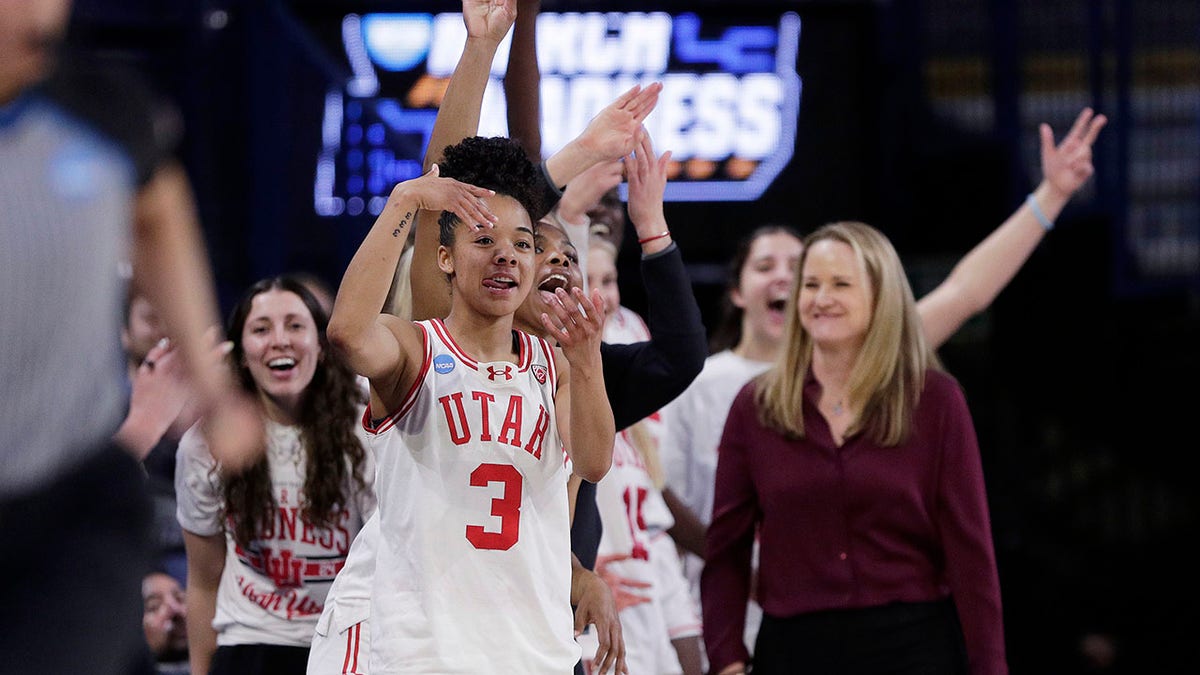
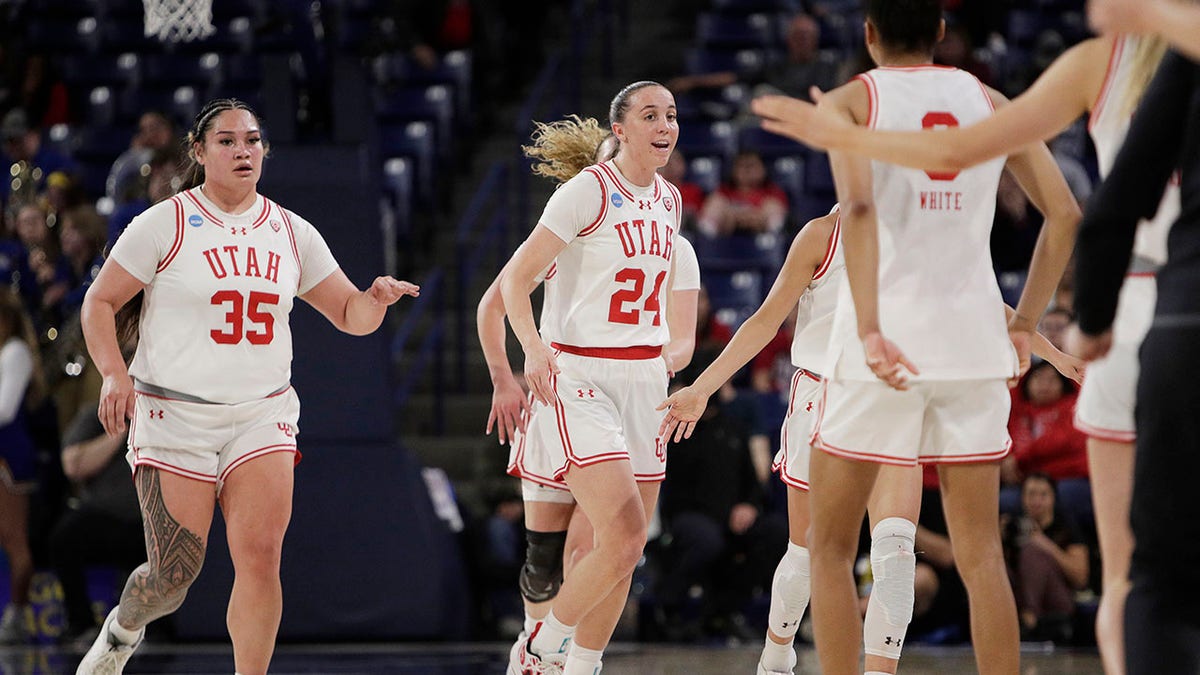
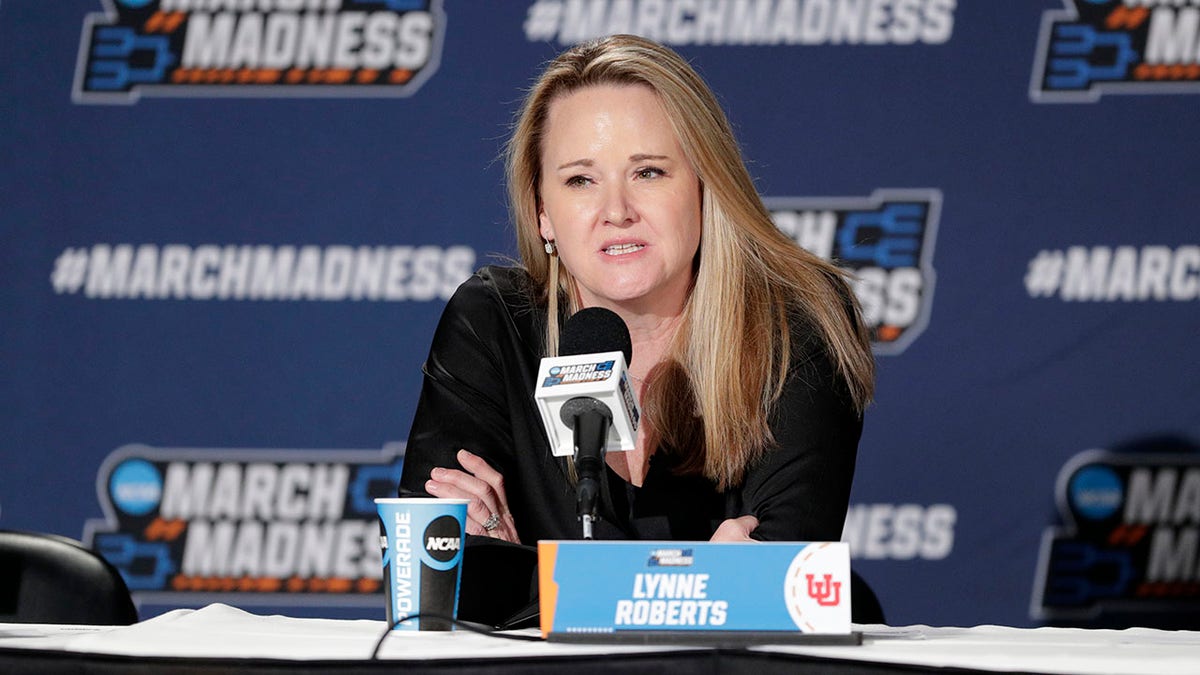
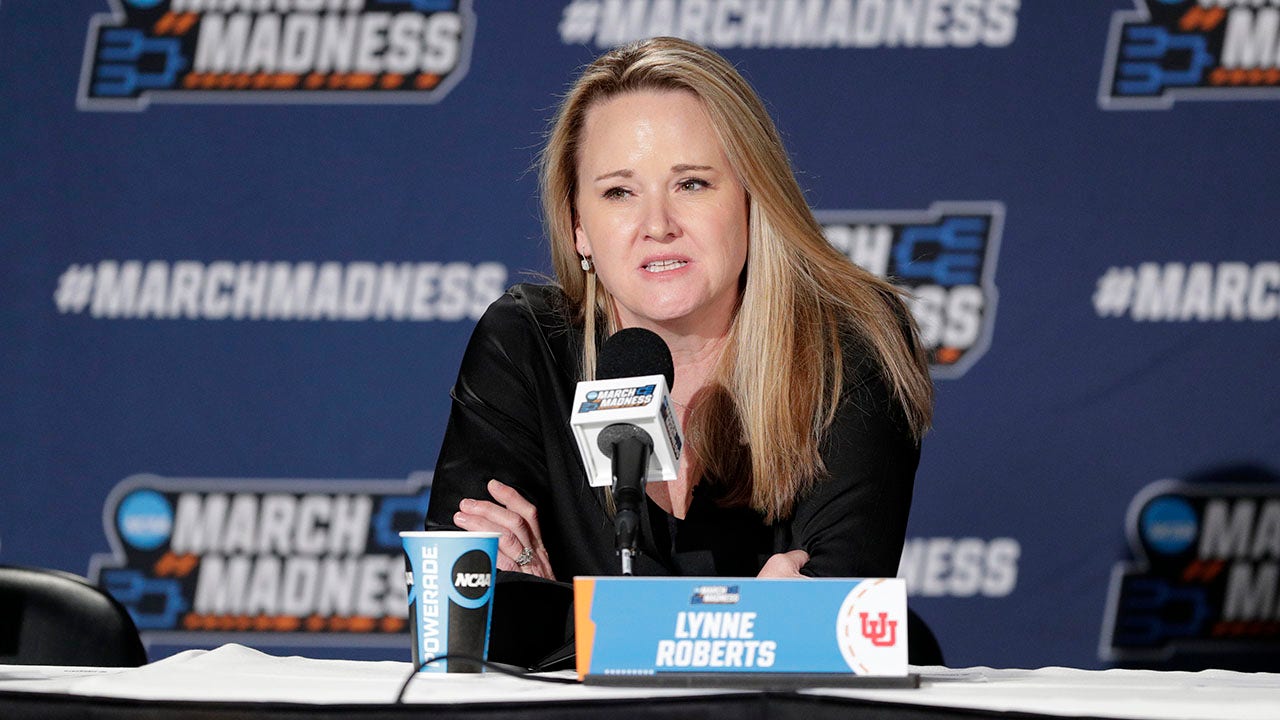

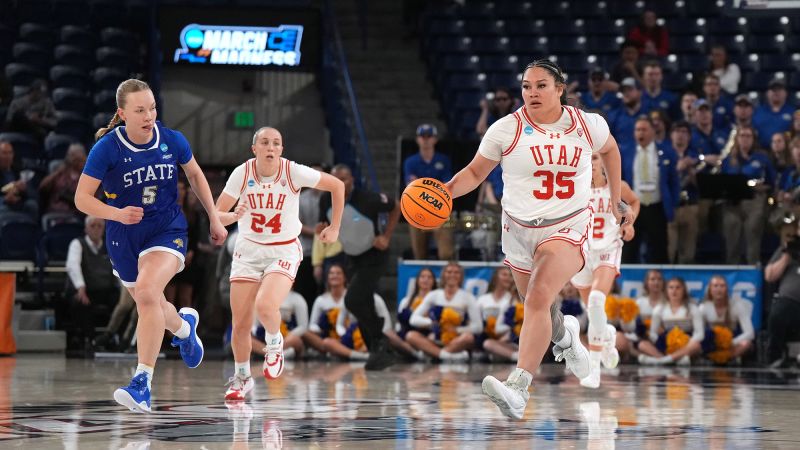
Confidence
80%
Doubts
- It is not clear if the logistical challenges are specific to Spokane or if they are a common issue faced by NCAA tournament hosts.
Sources
74%
Utah women’s basketball team switched hotels after experiencing racism, says head coach
CNN News Site: In-Depth Reporting and Analysis with Some Financial Conflicts and Sensational Language George Ramsay, Tuesday, 26 March 2024 13:15Unique Points
- Utah women's basketball team had to switch hotels after experiencing racial hate crimes.
- Roberts said that there is so much diversity on a college campus and racism is real. It happens. It’s awful.
Accuracy
- Roberts said that there is so much diversity on a college campus and racism is real. It happens. It's awful.
Deception (50%)
The article is deceptive in several ways. Firstly, the author claims that the Utah women's basketball team experienced 'racial hate crimes'. However, there are no specific details provided about what these incidents were or how they occurred. This lack of clarity makes it difficult to determine whether this statement is accurate or not.- The article states that the Utah women's basketball team had several instances of some kind of racial hate crimes towards their program, but there are no specific details provided about what these incidents were or how they occurred. This lack of clarity makes it difficult to determine whether this statement is accurate or not.
Fallacies (85%)
The article contains several examples of informal fallacies. The author uses an appeal to authority by citing the NCAA's condemnation of racism and hatred in any form. They also use inflammatory rhetoric when describing the alleged racist incidents as 'racial hate crimes'. Additionally, there are multiple instances where dichotomous depictions are used to describe the situation, such as when it is described as a positive experience for everyone involved except for Utah's women's basketball team. The author also uses an appeal to emotion by describing how upsetting and disturbing the incidents were for the players.- The NCAA condemns racism and hatred in any form
- Racism is real, it happens, it’s awful
- It was incredibly upsetting for all of us
Bias (100%)
None Found At Time Of Publication
Site Conflicts Of Interest (50%)
George Ramsay and Jill Martin have a conflict of interest on the topic of racial hate crimes as they are reporting on an incident that occurred at Gonzaga University. They also have a financial tie to the university through their employer CNN which has received advertising revenue from it.- [host university] Gonzaga worked to get us in a new hotel and we appreciate that. That's what happened.
Author Conflicts Of Interest (50%)
George Ramsay and Jill Martin have a conflict of interest on the topic of racial hate crimes as they are reporting for CNN which is owned by AT&T. This company has been criticized in the past for its involvement with private prison companies that profit from housing immigrants detained under President Trump's immigration policies.- George Ramsay and Jill Martin report on a Utah women’s basketball team switching hotels after experiencing racism, saying head coach Lynne Roberts. They do not disclose any financial ties or personal relationships with the team or the hotel.
76%
Utah women's basketball team subjected to 'racial hate crimes' at tournament hotel, coach says
Fox News Media Ryan Gaydos Wednesday, 27 March 2024 10:44Unique Points
- Utah women's basketball team was subjected to racial hate crimes at tournament hotel
- Coach Lynne Roberts made the revelation after the team lost to Gonzaga in second round of NCAA Tournament
- Incidents occurred Thursday night after arrival in Coeur d'Alene, Idaho for games being played in Spokane, Washington
Accuracy
No Contradictions at Time Of Publication
Deception (100%)
None Found At Time Of Publication
Fallacies (85%)
The article contains an appeal to authority fallacy when it quotes Lynne Roberts saying that the incidents were disturbing and upsetting. The author also uses inflammatory rhetoric by describing the incidents as 'racial hate crimes' which may be misleading or exaggerated.- > Utah women’s basketball coach Lynne Roberts said Monday her team was forced to change hotels upon arriving for the NCAA Tournament over ‘racial hate crimes.’
- Roberts made the revelation after the team lost to Gonzaga in the second round of the tournament. She said.
- <p>CLICK HERE FOR MORE SPORTS COVERAGE ON FOXNEWS.COM Utah head coach Lynne Roberts speaks during a press conference after playing Gonzaga in the NCAA Tournament in Spokane, Washington, Monday, March 25, 2024.</p>
- <p>Racism is real and it happens,” Roberts said. “There’s so much diversity on a college campus and so you’re just not exposed to that very often.”
- The Associated Press contributed to this report.
Bias (85%)
The article contains examples of religious bias and ideological bias. The author uses language that depicts one side as extreme or unreasonable.- > Utah women's basketball coach Lynne Roberts said Monday her team was forced to change hotels upon arriving for the NCAA Tournament over
Site Conflicts Of Interest (0%)
None Found At Time Of Publication
Author Conflicts Of Interest (50%)
None Found At Time Of Publication
83%
March Madness is taking over Spokane with both the men's and women's NCAA tourneys in town
The Associated Press News Thursday, 21 March 2024 20:08Unique Points
- Spokane is a hoops hotbed known as 'Hooptown'
- Gonzaga University hosts the women's NCAA tournament and has faced logistical challenges in finding hotels willing to commit room space without guaranteeing they would be hosts.
- Utah women's basketball team had to switch hotels after experiencing racial hate crimes.
Accuracy
- Nearly two decades after the Aryan Nations compound was demolished, far-right extremists are maintaining a presence in the Pacific Northwest.
Deception (50%)
The article is deceptive in several ways. Firstly, the author claims that Spokane is hosting both men's and women's NCAA tournaments on the first weekend. However, this statement is false as only one of these tournaments (the men's) was held in Spokane during this time period.- The article states 'Separated by just 1 walkable miles along the Spokane River, the McCarthey Athletic Center at Gonzaga and the Spokane Arena will host men’s and women’s tournament games beginning Friday and continuing through Monday.' However, this statement is false as only one of these tournaments (the men's) was held in Spokane during this time period.
- The article states 'Spokane is the only location hosting both men’s and women’s games on the first weekend.' However, this statement is false as other locations have hosted both men's and women's NCAA tournaments before.
Fallacies (85%)
The article contains several fallacies. The author uses an appeal to authority by stating that the NCAA loves bringing its events to Spokane due to community support and citing Hoopfest as a reason for this love. This is not evidence of any objective truth but rather an opinion based on personal preference or bias.- The author states,
Bias (100%)
None Found At Time Of Publication
Site Conflicts Of Interest (100%)
None Found At Time Of Publication
Author Conflicts Of Interest (0%)
None Found At Time Of Publication
75%
Unique Points
- Nearly two decades after the Aryan Nations compound was demolished, far-right extremists are maintaining a presence in the Pacific Northwest.
- White nationalism has been on the rise across the U.S., but it has particular resonance along the Idaho-Washington border.
Accuracy
No Contradictions at Time Of Publication
Deception (80%)
The article is highly deceptive in several ways. Firstly, it presents the Aryan Nations as a group that has been bankrupted and its compound seized by authorities. However, this information is not accurate as the Aryan Nations was never bankrupt and their compound was only partially demolished due to legal action brought against them for hate speech and violence.- The article states that the Aryan Nations were based near Hayden Lake, Idaho starting in the 1970s. However, this is not accurate as they were actually located in Spokane Valley, Washington.
Fallacies (75%)
The article contains several examples of informal fallacies. The author uses an appeal to authority by citing the Southern Poverty Law Center as a source for information about hate groups in the region. This is problematic because the SPLC has been criticized for its methods and biases, and relying on it as a sole source can lead to misinformation or confirmation bias. Additionally, there are several instances of inflammatory rhetoric used by far-right extremists quoted in the article, such as Pettibone's promotion of- The Southern Poverty Law Center is cited as a source for information about hate groups in the region.
- <br>Pettibone was a big promoter of the hoax known as <i>CPizzagate</i>, telling her online followers Hillary Clinton and other high-profile Democrats were involved in satanic rituals and child sex trafficking tied to a Washington, D.C., pizza restaurant.
- <br>Sellner is a leading figure in the extremist <b>identitarian</b> movement, which espouses a white nationalist ideology.
Bias (85%)
The article contains multiple examples of bias. The author uses language that dehumanizes white supremacists and portrays them as a threat to society. They also use quotes from far-right activists without providing context or counterarguments, which can be seen as an endorsement of their views.- Also last month, The Guardian published internet chats from 2017 in which a Washington state legislator and three other men discussed confronting “leftists” with a variety of tactics
- Despite his background, the Kootenai County Republican Central Committee passed a resolution urging the federal government to allow Sellner into the United States.
- In a third case, a nationwide arrest warrant was issued in May for a Stevens County, Washington man who allegedly tried to extort members of his right-wing militia group through anonymous written threats backed by insinuations they came from a Mexican drug cartel.
- In late April, a self-described “American Nationalist” named Brittany Pettibone appeared at a meeting of Kootenai County, Idaho Republicans to ask for help to bring her boyfriend
- Nearly two decades after the Aryan Nations’ Idaho compound was demolished
- White nationalism has been on the rise across the U.S., but it has particular resonance along the Idaho-Washington border, where the Aryans espoused hate and violence for years.
Site Conflicts Of Interest (50%)
The article discusses hate groups in the Pacific Northwest and specifically mentions several known hate groups such as Aryan Nations, Identity Evropa, Proud Boys, ACT for America and America's Promise Ministries. The author also references Keegan Hankes of the Southern Poverty Law Center who has studied these groups.- Keegan Hankes of the Southern Poverty Law Center is referenced in the article
- The article mentions several known hate groups such as Aryan Nations
- The author specifically mentions Identity Evropa, Proud Boys, ACT for America and America's Promise Ministries
Author Conflicts Of Interest (0%)
None Found At Time Of Publication